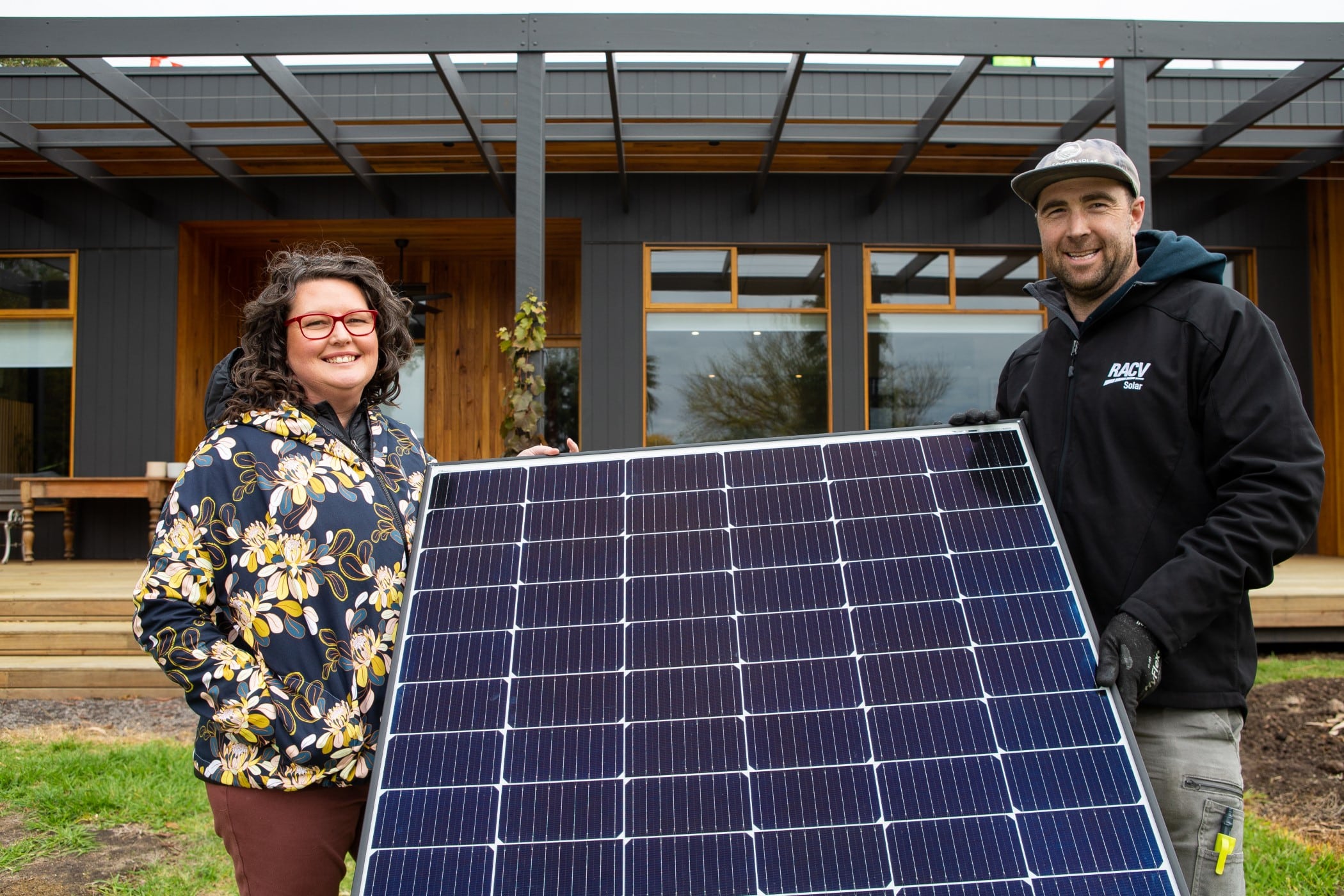Community Battery Feasibility Study
The Project
As the transition to renewable energy is becoming more and more progressed, Geelong Sustainability is leading the charge in progressing community batteries for Greater Geelong.
Community Batteries, which are also sometimes referred to as ‘Neighbourhood Batteries’, are a type of battery storage for energy. These batteries are bigger than a home battery and can help to power a small neighbourhood.
Throughout 2021-2022, Geelong Sustainability was funded by the Victorian Government Department of Environment, Land, Water and Planning (DELWP) to conduct a feasibility study around community batteries in the City of Greater Geelong region. The results of this study are now helping inform potential future projects, funding, policies or structures for Community Batteries in this region.

Geelong Sustainability has been working for many years to support the development of renewable sources of power in the Greater Geelong area. The group is keen to support the electrification of society and move away from the use of fossil fuels.
The group has actively been involved in projects that enable local residents and businesses to install roof top solar and distributed storage - including the most recent Geelong Community Solar program where 1720 kW of Solar and 835 kWh of battery were installed across ~300 residential and commercial applications.
The large increase in rooftop solar is excellent news, but is beginning to impact the broader electricity grid. Day time solar peaks are having an impact on the poles, transformers and wires of the Powercor grid. There have been instances of rooftop PV installations in the Geelong area that are limited or denied the capability to export excess generation to the grid. This can have an impact on Feed In Tariffs (FiT) and the viability of a system.
The variability of PV Solar, the issues with the grid and the clear need to store that excess generation (preferably locally to support the grid), has drawn the attention of the State Government. DELWP’s Neighbourhood Battery Initiative issued a number of grants to study the concept and whether distributed storage and particularly Neighbourhood Batteries could be a solution.


Geelong Sustainability worked with DELWP, the City of Greater Geelong, ITP Renewables and Tango Energy to study how best to incorporate that distributed storage.
As part of the feasibility, Geelong Sustainability has opened a Community Battery Survey for community members to have their say about Community Batteries. The group hopes the survey will gather the community’s interest, understanding, concerns and needs in regard to Community Batteries.
This study set out to explore and identify the feasibility of installing Neighbourhood Batteries in the City of Greater Geelong region. In particular we were interested in how the installation of neighbourhood batteries could store and retrieve community solar generation, further reducing Geelong’s reliance on fossil fuel-based electricity and helping the community achieve its 100% renewable energy targets.
The key objective for the project was to evaluate potential business models and assess viable paths to neighbourhood battery deployment. In doing so Geelong Sustainability wanted to ensure that community benefits were maintained at the forefront of the project.
The Results
What we found was that current battery and installation costs are still very high and the economics are marginal, if not poor. What was also uncovered was the huge complexity of commercial, regulatory and technical requirements for developing, installing and operating Neighbourhood Batteries.
This study has highlighted a number of considerations for Neighbourhood Batteries that should be addressed in order to make neighbourhood batteries more feasible. It should also be noted that although it may be possible for Neighbourhood Batteries to stack up financially with further incentives or regulation change, the complexities and associated risks of undertaking such a project are beyond which Geelong Sustainability would be willing to take on as a not-for-profit community organisation.
In addition Geelong Sustainability could not fully realise its intended community benefits from a Neighbourhood Battery. However, with Government support, there are opportunities to help the community directly with a combination of PV Generation and Storage, and Geelong Sustainability would be very keen to work in identifying those opportunities in the Greater Geelong region.
If you would like to learn more about the results of the study, you can watch the Community Battery Forum here.
The Report
The full report is available for viewing and download.
